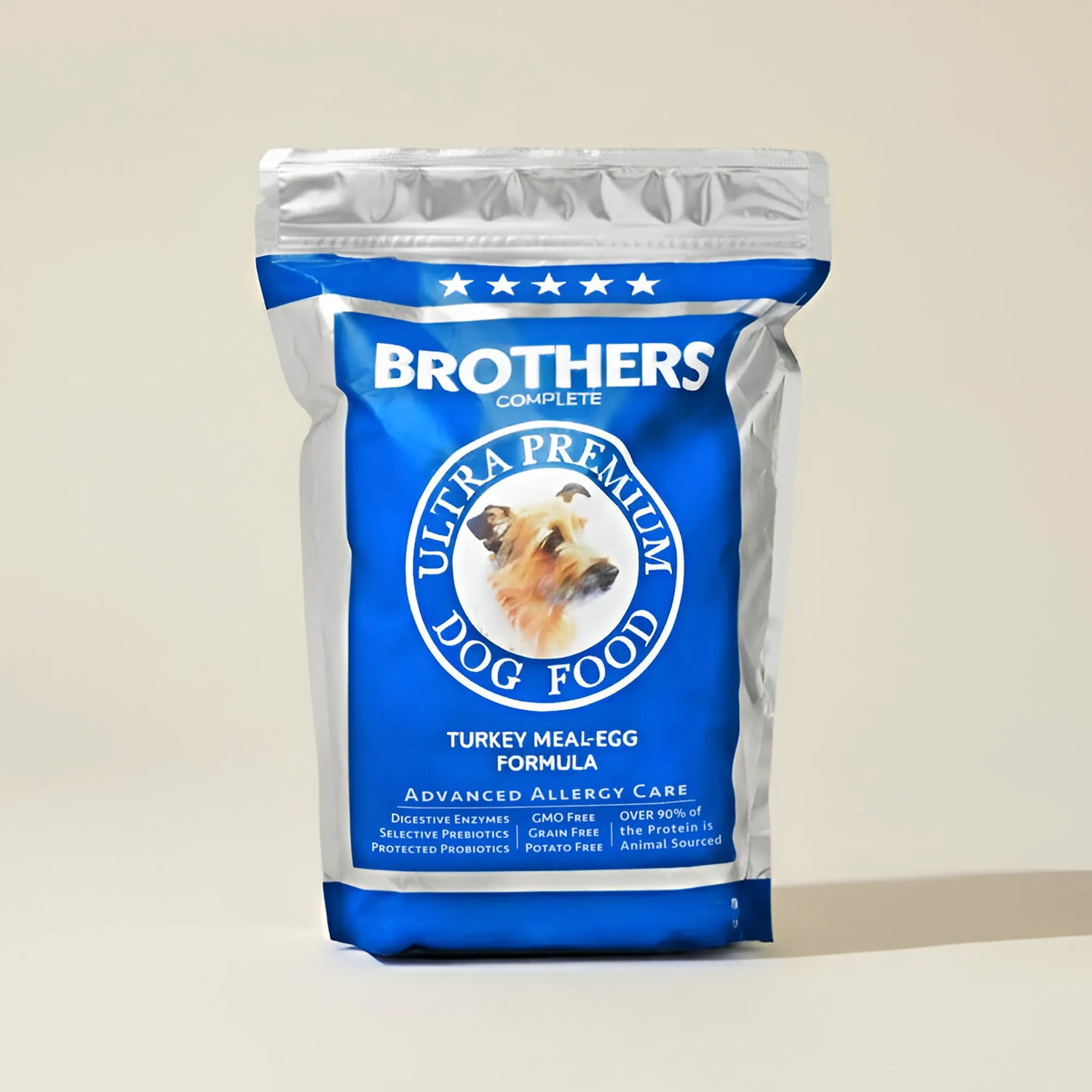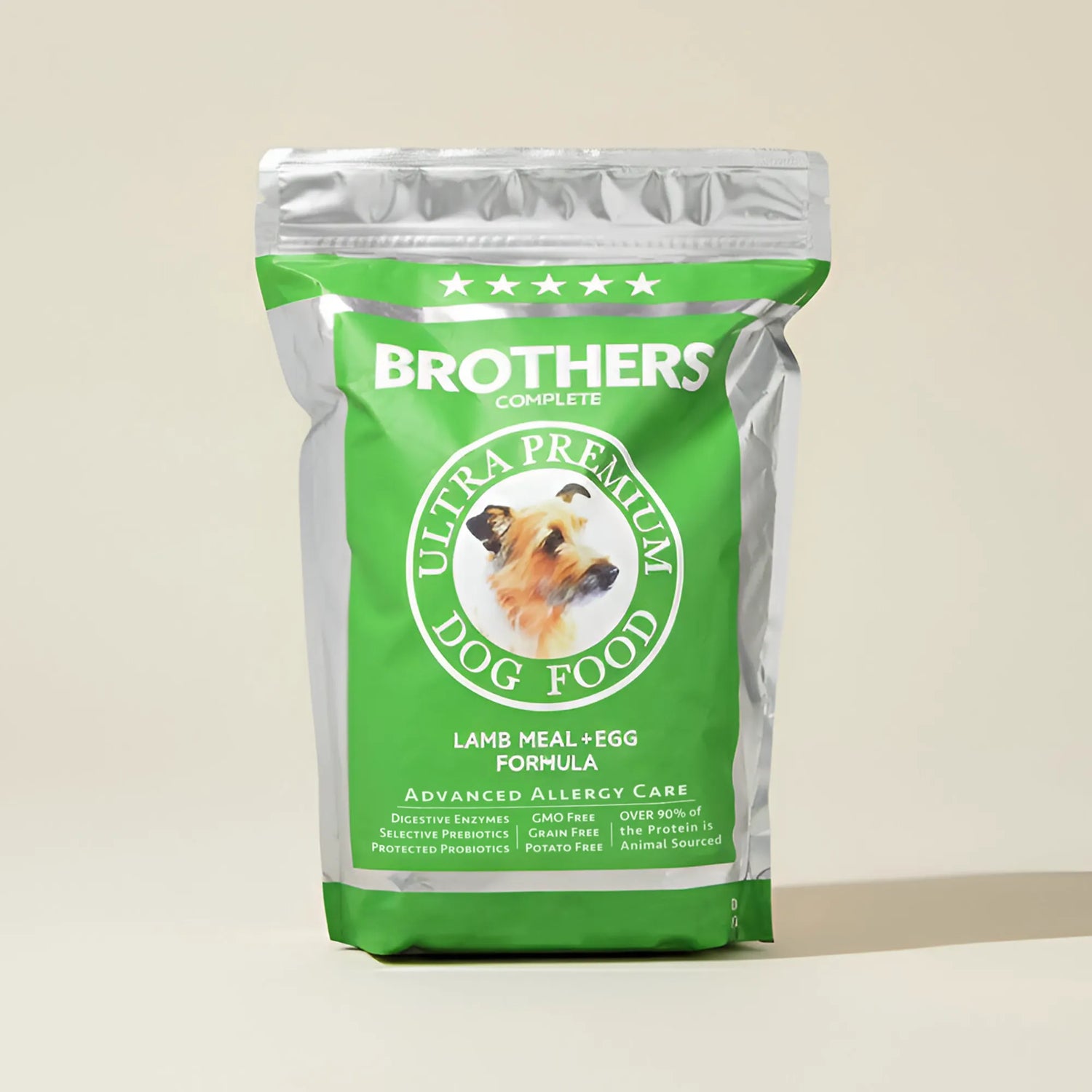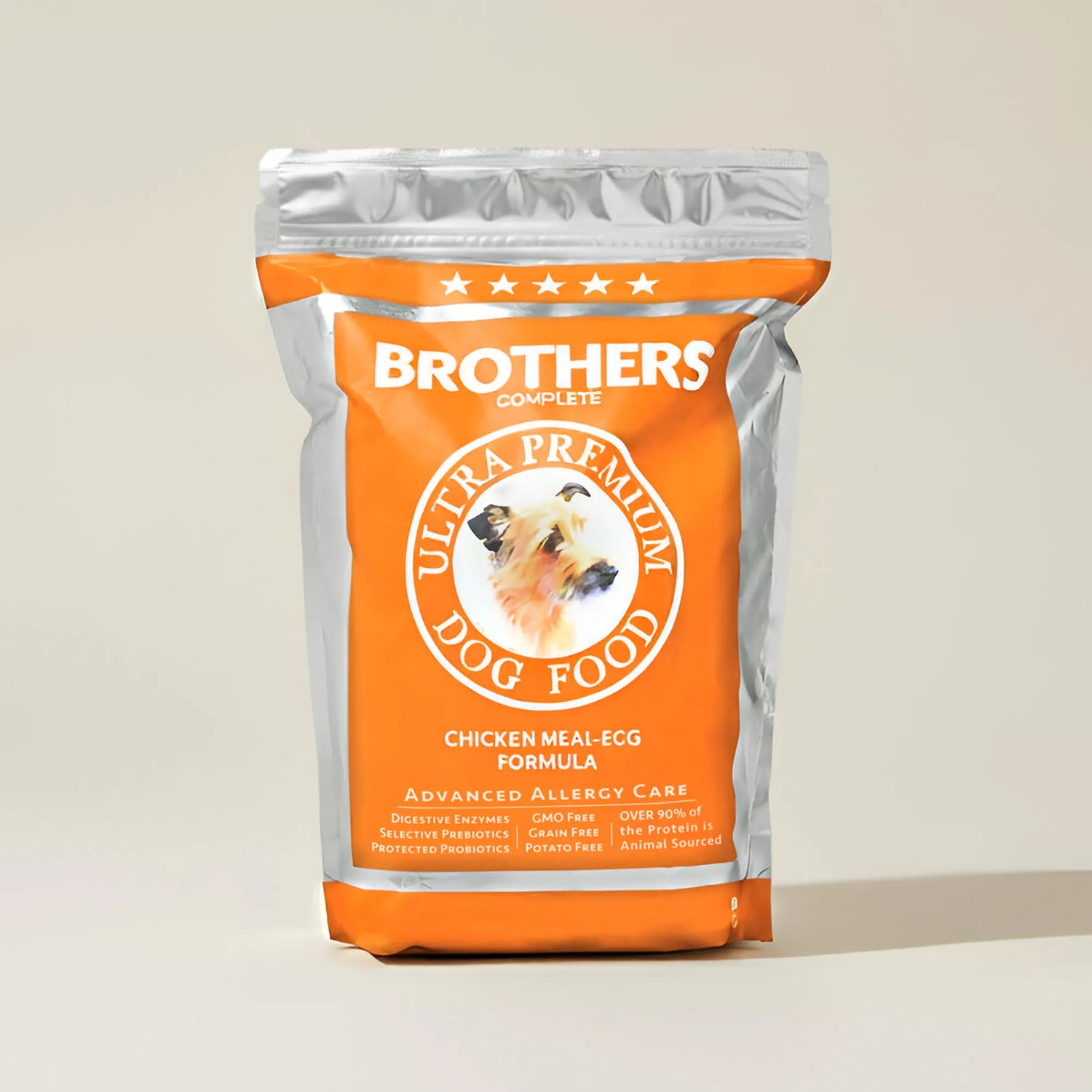
Dogs and the Gut Microbiota: Why Your Dog’s Health Starts in the Gut
Summary:
Your dog’s gut is more than just a place where food gets digested. It’s home to trillions of microbes — the gut microbiota — that influence everything from digestion and allergies to energy, behavior, and immune response. In this post, we’ll explore what the canine gut microbiome is, why it matters, what disrupts it, and how you can support it — starting with the food in your dog’s bowl.
What Is the Gut Microbiota in Dogs?
The gut microbiota refers to the community of bacteria, fungi, and other microbes that live in your dog’s digestive tract — mostly in the intestines.
As the AKC Canine Health Foundation explains, this microbial ecosystem helps:
- Break down food
- Synthesize vitamins
- Absorb nutrients
- Regulate inflammation
- Train and support the immune system
- Protect against harmful bacteria and yeast
Together, these microbes form the gut microbiome — a dynamic, interconnected system that affects your dog’s whole-body health.
Why the Microbiome Matters for Dogs
When the microbiome is in balance, your dog:
- Digests food properly
- Absorbs key nutrients
- Has firm, consistent stools
- Feels more energized
- Has fewer allergic reactions
- Maintains healthy skin and coat
- Shows more stable mood and behavior
When the microbiome is out of balance (a state called dysbiosis), your dog may struggle with:
- Diarrhea or constipation
- Gas, bloating, or vomiting
- Food sensitivities
- Chronic itching or ear infections
- Weakened immune response
- Behavioral changes
As the NIH confirms, a disrupted gut microbiome is linked to systemic inflammation, immune dysregulation, and even anxiety-related behaviors in animals.
What Damages the Gut Microbiota in Dogs?
There are several common culprits that negatively impact your dog’s gut health:
1. Highly Processed, High-Starch Diets
Most commercial kibble contains:
- Too many high-glycemic carbs (potatoes, rice, etc.)
- Low-quality or plant-based proteins
- Fillers that feed bad bacteria and yeast
These ingredients disrupt microbial balance and can lead to inflammation and yeast overgrowth.
2. Antibiotics and Medications
While sometimes necessary, antibiotics can wipe out beneficial gut bacteria along with harmful ones, leaving the microbiome vulnerable.
3. Chronic Stress
Stress hormones affect digestion and reduce microbial diversity — especially in sensitive dogs.
4. Environmental Toxins and Poor-Quality Treats
Synthetic preservatives, artificial flavors, and contaminated water can all harm gut flora over time.
How to Improve the Gut Microbiome in Dogs
If you’re wondering:
- How do I improve my dog’s gut health?
- What can I give my dog for gut health?
- What dog food is good for the microbiome?
You're already asking the right questions.
Here’s what works:
Feed Real, Digestible Protein (Animal-Based)
Animal protein is easier to digest and provides essential amino acids for tissue repair and immune support.
Limit Starch and Sugar
Low-glycemic carbs like cassava and chickpeas offer clean energy without feeding yeast or bad bacteria.
Support with Probiotics and Prebiotics
Probiotics introduce beneficial bacteria; prebiotics (plant fiber) feed them. Together, they rebuild a healthy microbiome.
Use Digestive Enzymes
Enzymes help break down proteins, fats, and carbs — reducing inflammation and supporting better absorption.
Why Brothers Dog Food Supports the Gut Like No Other
At Brothers, gut health isn’t a feature — it’s the foundation. Our recipes are designed specifically to:
- Rebuild the microbiome
- Ease digestion
- Reduce inflammation
- Starve yeast and bad bacteria
- Support nutrient absorption
Every bag includes:
- Over 90% animal-sourced protein
- Low-glycemic, anti-yeast carbs
- No corn, wheat, or soy
- A proprietary blend of digestive enzymes + probiotics
That means more than just better digestion. It means healthier skin, calmer behavior, fewer allergies, and a stronger immune system.
Final Thoughts: Want to Help Your Dog Live Longer? Start With the Gut.
You can’t see your dog’s microbiota — but it’s affecting everything from how they poop to how they feel, move, and age.
Supporting gut health doesn’t require a fancy test or a radical diet. It starts with what’s in the bowl. Every day.
So if your dog is struggling with digestion, allergies, or energy…Don’t just treat the symptoms. Feed the system.
Want to support your dog’s microbiome with every meal?
Explore our gut-health-first, microbiota-friendly recipes at
brothersdogfood.com
Sources
- AKC Canine Health Foundation: https://www.akcchf.org/educational-resources/library/articles/gut-instinct-how-microbiota/
- NIH National Institute of Health: https://pmc.ncbi.nlm.nih.gov/articles/PMC10780391/
- AMC Schwarzman Animal Medical Center: https://www.amcny.org/pet_health_library/allergies-in-dogs/
Share







